Betwa Sharma reports on the evolving authoritarianism of the Modi government in response to the protesting farmers camped out on national highways during a very cold winter.
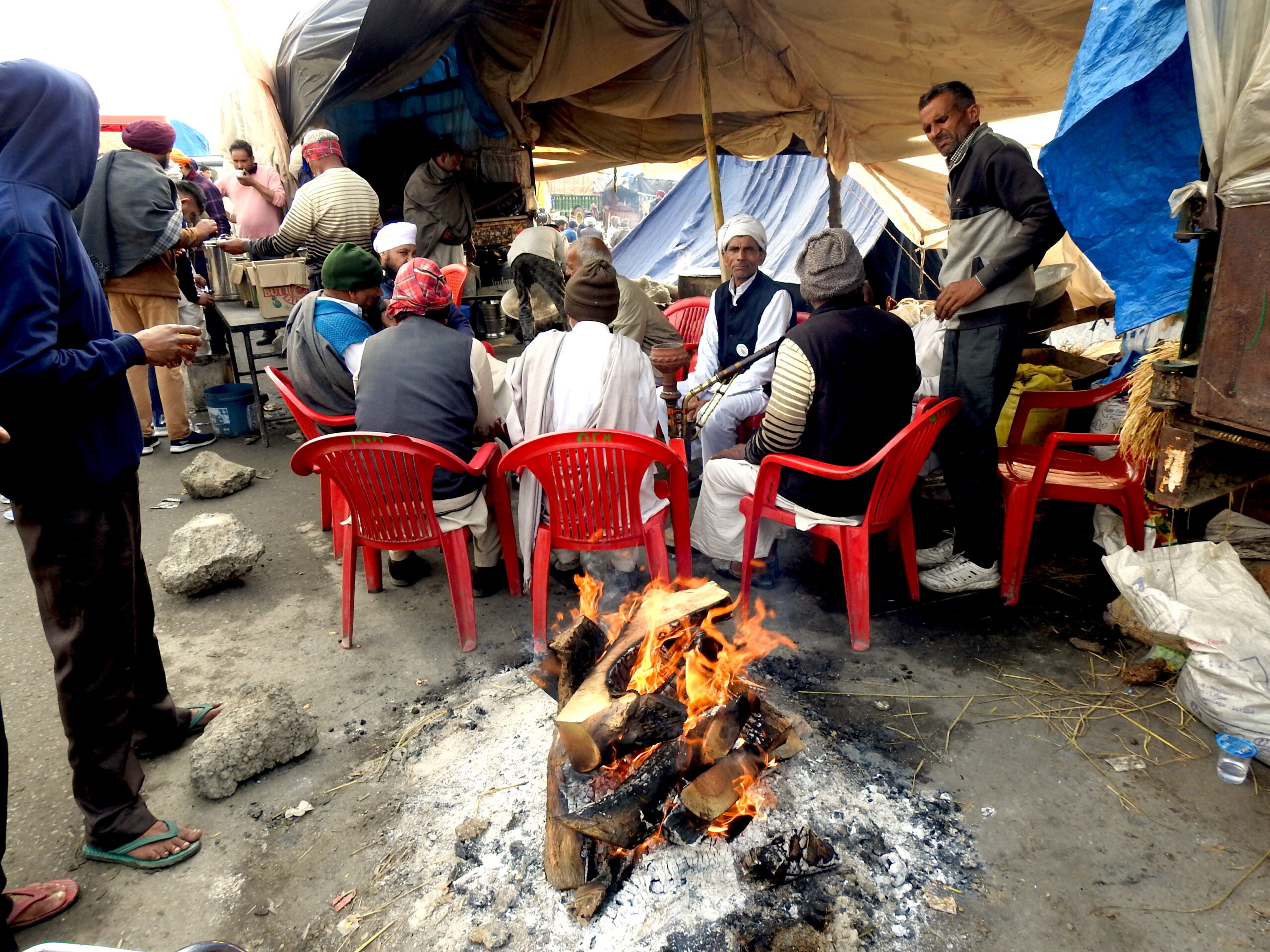
Indian farmers’ protest at the Singhu border, Delhi, Jan. 6, 2021. (Harvinder Chandigarh, CC BY-SA 4.0, Wikimedia Commons)
By Betwa Sharma
in New Delhi
Special to Consortium News
 The locations are Delhi’s borders with Haryana and Uttar Pradesh in northern India, but images posted on Twitter last week of drones, cement walls, rows of barricades, rolls of concertina wire, trenches and iron spikes sparked comments about whether they were India’s borders with China and Pakistan.
The locations are Delhi’s borders with Haryana and Uttar Pradesh in northern India, but images posted on Twitter last week of drones, cement walls, rows of barricades, rolls of concertina wire, trenches and iron spikes sparked comments about whether they were India’s borders with China and Pakistan.
The images captured the evolving authoritarianism of Prime Minister Narendra Modi’s government in response to the hundreds of thousands of farmers who have spent an extremely cold winter camped out on national highways leading to Delhi.
This image should be @TIME face cover. Modi's BJP Govt is treating our farmers as enemies of the state. Even at India Pakistan border you won't find this level of restrictions and security. #farmersprotest
Welcome to Delhi ? pic.twitter.com/SBc1xAlvrM
— Vishnu Narayanan (@visnarayanan) February 4, 2021
Tweets by pop star Rihanna, climate change activist Greta Thunberg and other international celebrities have forced unprecedented global attention onto the months-long farmers’ protest against three controversial farms laws and the undemocratic way they were passed.
The Modi government’s reaction to the international attention has turned the spotlight onto the steady diet of false propaganda and punitive action that has been used to crush dissent ever since the Hindu nationalist Bharatiya Janata Party (BJP) came to power in 2014.
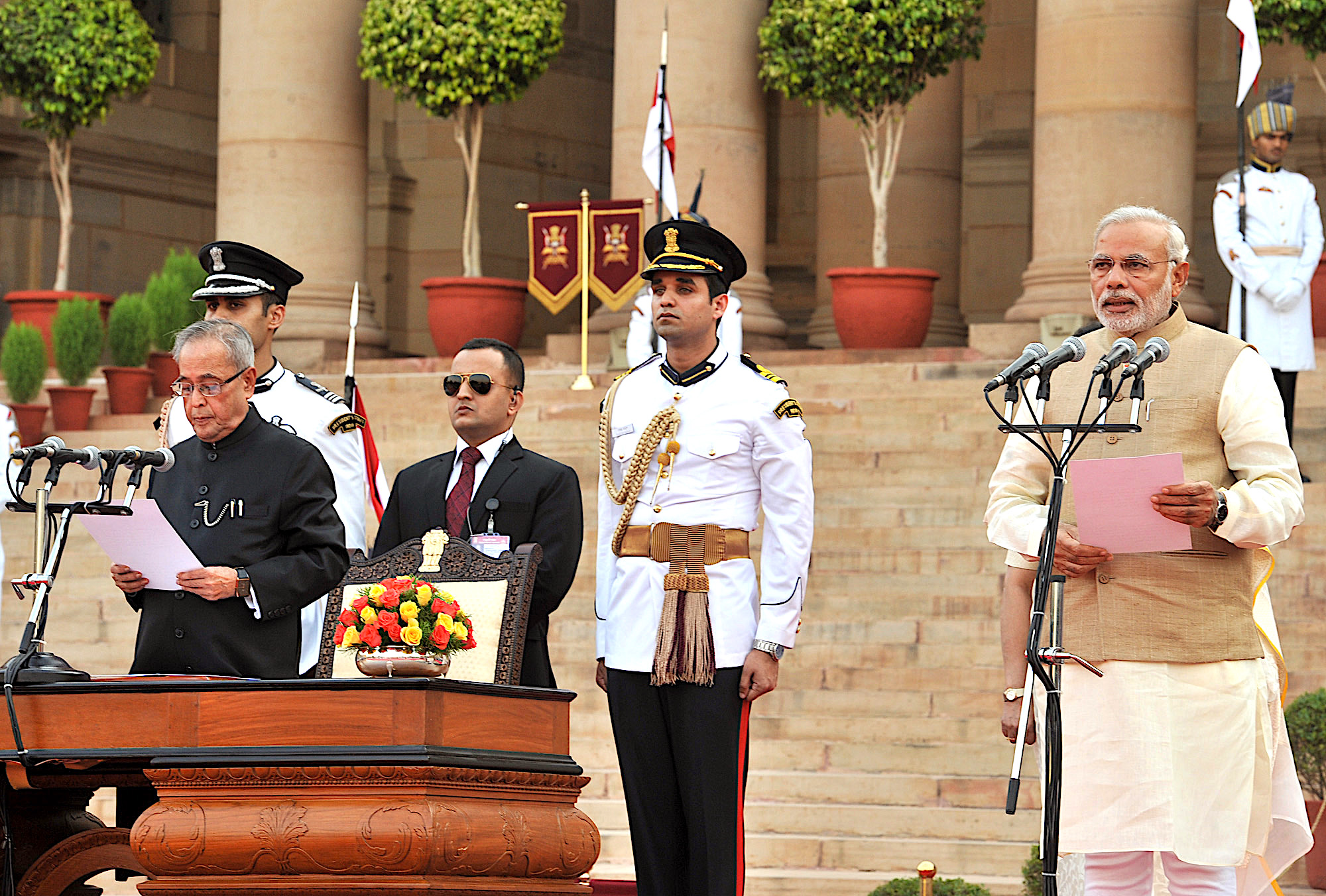
Narendra Modi takes the oath of office as prime minister of India in New Delhi on May 26, 2014.
(Prime Minister’s Office, Government of India, Wikimedia Commons)
For the past six years, protests have been projected as conspiracies to derail the country, journalists have been accused of crimes like sedition and jailed and anyone challenging the government narrative has been called “anti-national.”
Instead of taking the outpouring of criticism in its stride, as one expects of the world’s largest democracy, the Indian government has decided to hit back at the pop star who has 100 million followers on Twitter and the Swedish teenager, a global icon of climate activism.
The Ministry of External Affairs issued a press release with two hashtags #IndiaTogether and #IndiaAgainstPropaganda, saying that “vested interests” were forcing their agenda on India, and that, “The temptation of sensationalist social media hashtags and comments, especially when resorted to by celebrities and others, is neither accurate nor responsible.”
Farmers’ Protest ‘Toolkit’
The Delhi Police filed a case of sedition, criminal conspiracy and promoting hatred against “unknown persons” who created the farmers’ protest “toolkit,” a guideline to raise awareness and mobilize people, which was shared and then deleted by Thunberg.
The police allege that the “toolkit” was the action plan for the violent turn the farmers’ rally took on Jan. 26, India’s Republic Day, which marks the day the Indian Constitution came into effect in 1950. It is celebrated every year with a parade displaying India’s military might and cultural diversity.
Within hours of the Indian government’s reactions to Rihanna’s tweet, it would appear that Bollywood actors and Indian sports stars — most of whom have remained silent during the farmers’ protest — were roped into tweeting pro government messages using the same hashtags, #IndiaTogether and #IndiaAgainstPropoganda.
While some Hollywood celebrities were critical of former President Donald Trump’s policies on immigration, climate change and his handling of white supremacists, Indian celebrities with legions of followers have been mute spectators as Hindu majoritarianism has become a way of life.
There have been physical and verbal attacks directed at Indian Muslims, lynchings by Hindu vigilantes and a communal riot that left 53 people dead, 40 of them Muslims. Even with the farmers’ protest, there has been a concerted effort to suggest that the farmers — many of whom are Sikhs from Punjab — are linked to the Khalistan movement — a secessionist movement to liberate Punjab that intensified in the 1970s and 1980s.
In January, the Modi government told the Supreme Court that Khalistanis had infiltrated the movement. The Indian police is alleging that two Canadian firms called the Poetic Justice Foundation (PJF) and Skyrocket, plus Sikh separatists living in Canada, were behind the first “toolkit” which Thunberg deleted from her Twitter timeline.
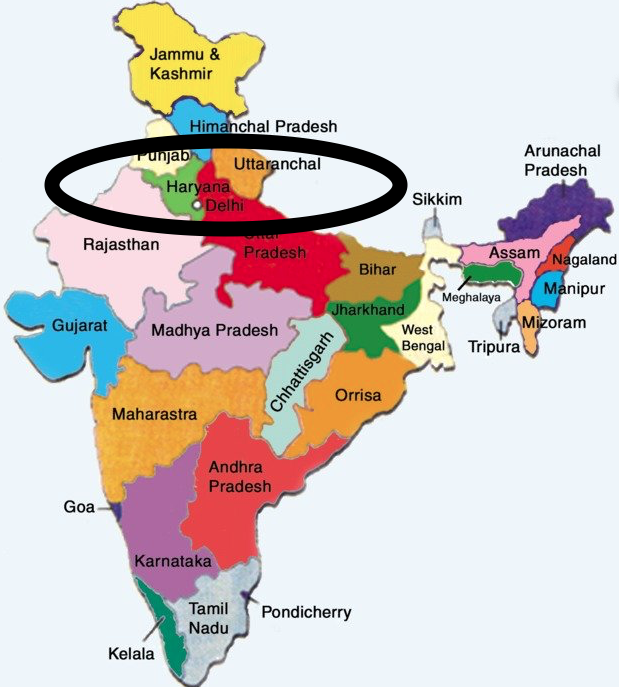
Map of India with Delhi’s borders with Haryana and Uttar Pradesh circled. (Square Space, CC BY-NC-ND 4.0)
The police also alleged that these groups paid Rihanna $2.5 million to tweet out a CNN article published on Feb. 3, “India cuts internet around New Delhi as protesting farmers clash with police,” with the message, “why aren’t we talking about this?! #FarmersProtest.” (The tweet has received 921,000 likes and has been retweeted more than 360,000 times.)
why aren’t we talking about this?! #FarmersProtest https://t.co/obmIlXhK9S
— Rihanna (@rihanna) February 2, 2021
PJF has said that while they wanted the world to know about the farmers’ protest, they did not stir up protests inside India, or pay Rihanna to tweet what she did.
The BJP has encouraged a sustained campaign: vilifying the farmers’ protest, detracting from concerns that farmers have about the contentious new laws aimed at deregulating India’s farming sector, which farmers worry will eventually end guaranteed prices they receive for certain crops, and make them vulnerable to large corporations.
The agriculture sector, which employs 58 percent of Indian farmers but contributes only 20 percent to India’s GDP, is plagued by problems, natural and manmade, and has been crying out for reform.
Even as the Modi government has carried out 11 rounds of talks with the farmers, and offered to put the farms laws on hold for 18 months, BJP leaders have called the farmers’ protest “ultra left” and “anti-national.”
But unlike the people’s movement against the Citizenship Amendment Act (CAA), led by Muslim women, students and activists, which the BJP successfully managed to paint as “anti-national” in 2019 and 2020, efforts vilifying the Sikh farmers have not gained traction.
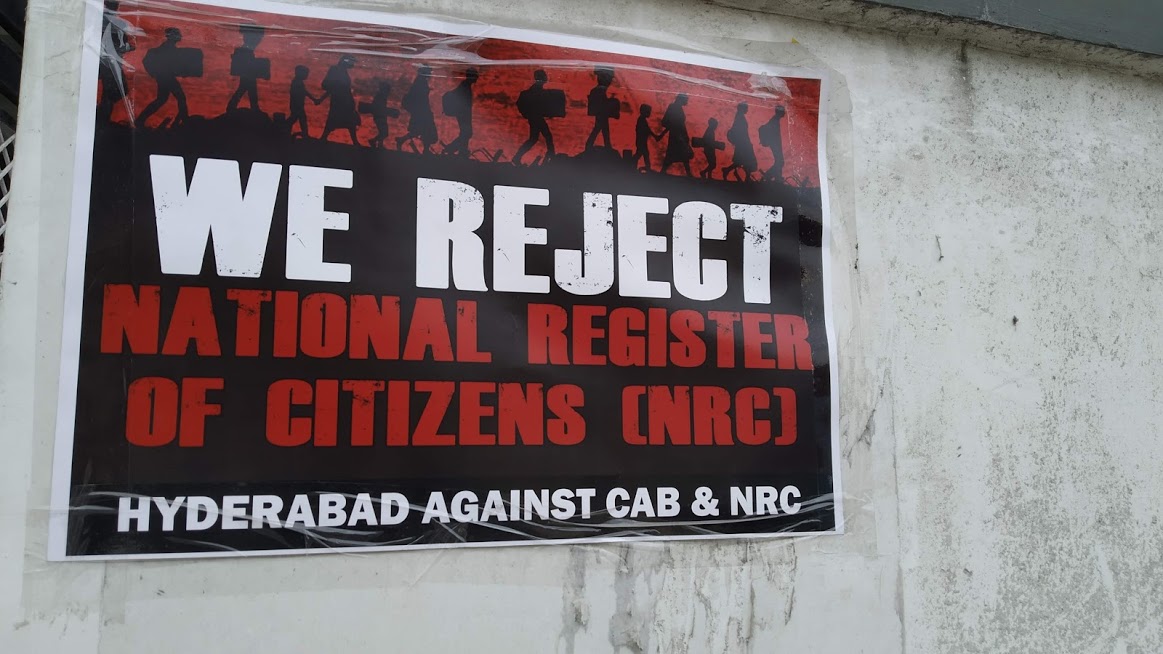
Protest poster against Citizenship Amendment bill at Hyderabad, November 2019. (Muzammil, CC BY-SA 4.0, Wikimedia Commons)
Even after the farmers’ rally on Jan. 26 took a violent turn, and it seemed like the movement may get derailed, farmers have stayed put at three protest sites on Delhi borders and have managed to keep things peaceful.
Tens of thousands of farmers have responded to the emotional appeal made by Rakesh Tikait, a farm leader from the Jat community in Uttar Pradesh, who revived the protest after the Jan. 26 violence.
But the crackdown on the farmers’ action has persisted in myriad ways.
Internet, Power & Water
The Modi government has carried out a series of measures to end the protest. It has been suspending the internet at the protest sites and adjoining areas of New Delhi, with 10 internet suspensions carried out in the first 40 days of 2021.
The Indian Express reported on Feb. 7 that India leads the global tally in suspension of Internet services over the past decade, with as many as 164 shutdowns in 2019 and 2020. The longest instance of high-speed Internet being suspended in a democracy, for 552 days, ended in Jammu and Kashmir on Feb. 5.
As the Modi government is strategically trying to wear them out, farmers at the protest sites have said that the fortifications which have been dug around them after Jan. 26 has made it difficult for them to access water and power. Access to clean toilets have been a problem since December, with one survey saying that 3-in-5 persons at the different protest sites have to defecate in the open.
The fortifications have made access to toilets even harder, especially for women. In one shocking statement, Union Power Minister RK Singh said the farmers were stealing electricity and the Delhi Police were justified in snapping the connections.
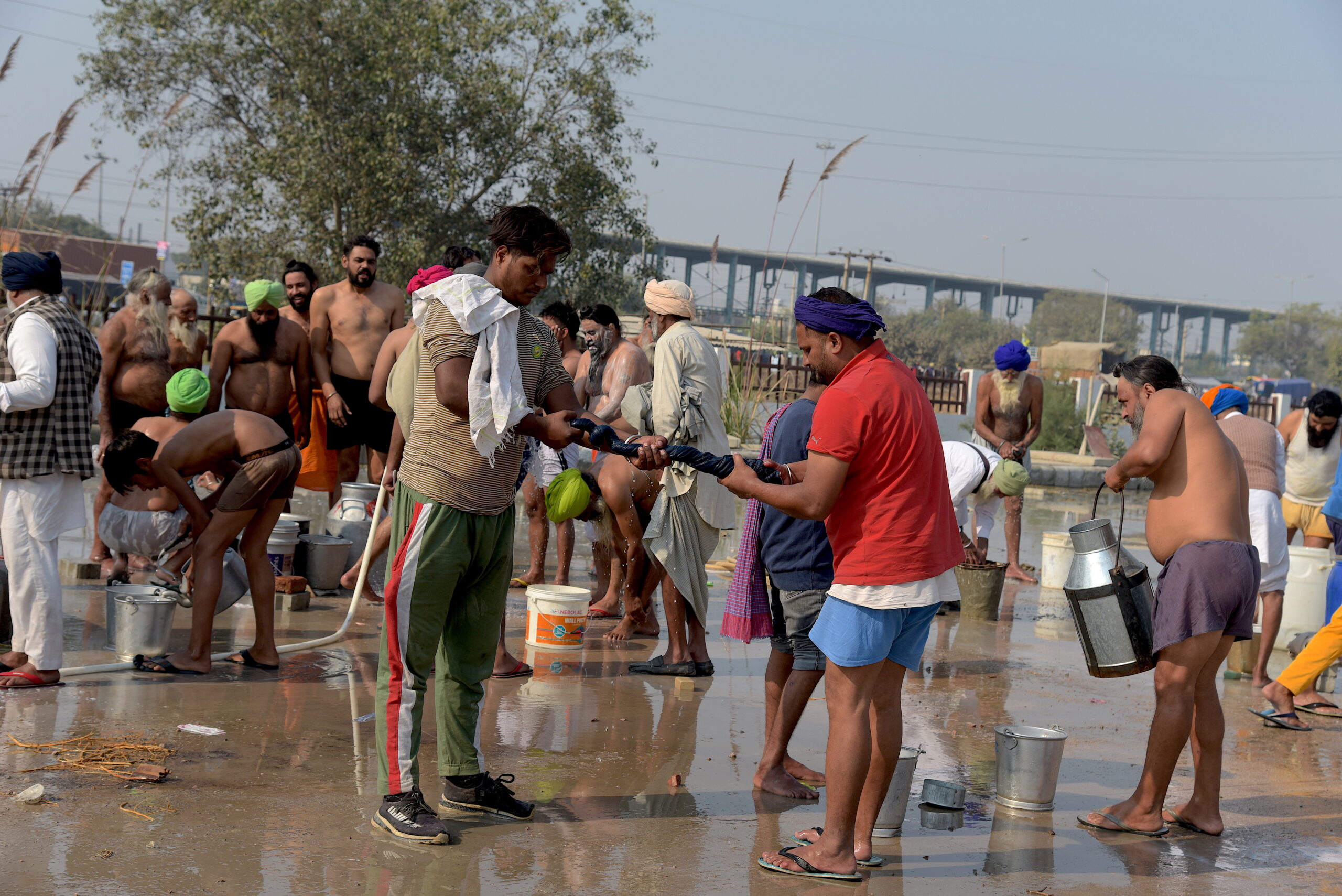
Punjabi men washing clothes during the farmers’ protest, November 2020. (Randeep Maddoke, CC0, Wikimedia Commons)
Free Speech Under Attack
In the aftermath of the violence on Jan. 26, seven journalists were booked for sedition and promoting communal disharmony for allegedly misreporting the circumstances of how a farmer was killed, even though there is enough reporting to challenge the government account of his death.
Then, the Indian government pressured Twitter to block the accounts of 250 people who were tweeting about the farmers’ protest, and were critical of the government. The government said they were using a hashtag that could incite public disorder and the commission of offences. When Twitter restored their accounts in wake of a furor, saying they had to in the interest of free speech, the Modi government threatened to send Twitter employees to jail for up to seven years.
Earlier today, the Hindustan Times reported that the Modi government had asked Twitter to suspend over 1,000 accounts that may “foment trouble.”
Criminalizing Protests
Meanwhile, two states in which the BJP is in power appear to be criminalizing participation in protests and online criticism of the government.
In Bihar, any person who is arrested and charged after a protest could be denied passports, government jobs, financial grants and bank loans. In Uttarakhand, the police will monitor social media, and people writing “anti-national” posts could be denied passports and arms license.
“From now onwards, the police will scrutinise the accused’s social media behaviour to check if he is habitually putting out such anti-national posts. If it is found so, then the police would mention it in his or her police verification and may not clear his application for passport or arms license,” said Ashok Kumar, the senior most police officer in the state.
Betwa Sharma is the former politics editor at HuffPostIndia and has contributed to The New York Times, The Guardian, Foreign Policy, The New Republic, Al Jazeera and Time Magazine.



Show Comments